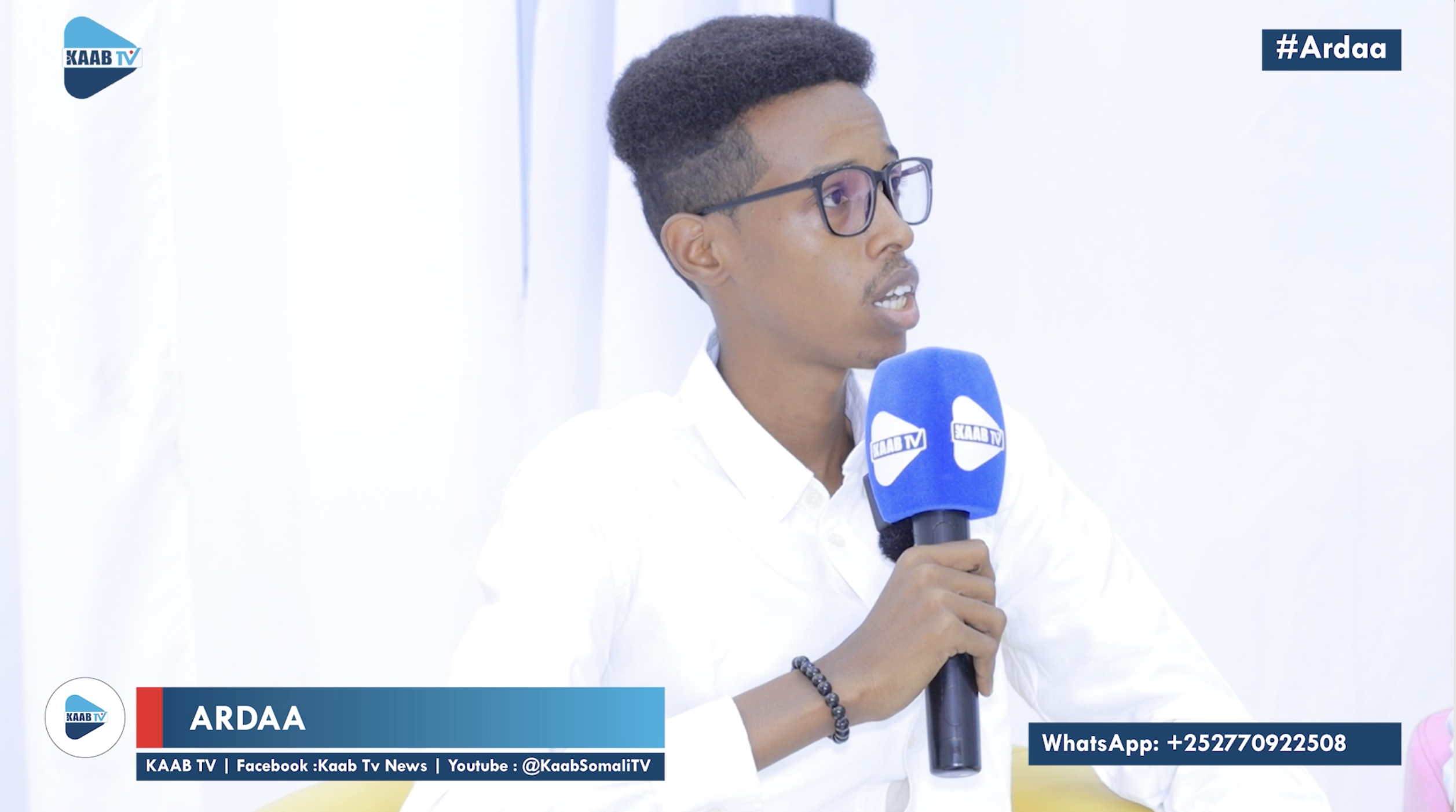GAROWE (Ardaa Kaab TV) – Last week, Kaab TV aired another powerful episode of its flagship program Ardaa, a platform focused on exploring Somalia’s path toward democratic transformation and how these efforts can be localized and sustained at the grassroots level.
The episode centered on Puntland — the northeastern federal state of Somalia — which has become a beacon of hope in the nation’s decades-long struggle for democratic governance.
Background
In 2023, Puntland made history by holding the country’s first one-person, one-vote local elections in over half a century — a major milestone in Somalia’s journey toward democracy.
While the process faced fierce resistance, including violent clashes in the capital, Garowe where 36 people were killed, after armed opposition groups attempted to derail the vote, the local government elections were successfully concluded in July 2024.
More recently, the Puntland Electoral Commission unveiled a five-year strategic plan aimed at deepening democratic governance through full-scale presidential and parliamentary elections.
The roadmap, if implemented, could reshape political representation in the region, especially for groups historically excluded from decision-making — including women, youth, internally displaced persons (IDPs), and marginalized communities.

To assess the significance and the challenges of this democratic opening, Kaab TV convened a diverse panel of guests:
- Khadra Mohamed Hassan, a member of the Garowe City Council and one of only five women elected out of 33 councilors;
- Mohamud Hussein Jama, a young councilor representing Goldogob city, Mudug region;
- Hawo Mohamed, a women’s rights activist and director at the Puntland Ministry of Information; and
- Hussein Abdisalam Mohamed, a youth rights advocate deeply involved in civic awareness initiatives.
Youth: The Heartbeat of Democratic Change
According to Hussein Abdisalam, Puntland’s democratization is largely a product of youth-led demand for political participation and change.
“Eighty percent of voters in Puntland are young people,” Hussein said. “That’s exactly what we need — young blood leading us and shifting outdated norms. It’s a great step toward a greater Puntland.”
Mohamud Hussein Jama echoed this optimism but recalled the skepticism he encountered when he first decided to run for office in 2023.
“Older candidates tried to discourage me by citing the dangers of politics — terrorism, threats, even death. But I believed they were using fear to maintain the status quo,” he said. “Now, I can confidently say that the youth representatives across Puntland’s district councils — all 942 of us — are making a real impact on governance.”

Women’s Participation: Progress Amid Persistent Barriers
While the elections marked a breakthrough for many, women candidates still faced a unique set of obstacles.
Khadra Mohamed Hassan, one of the few elected female councilors, described the campaign trail as a challenging battleground.
“Standing before the public and asking for their votes was difficult,” she said. “Ironically, most of the voters were women and young people. But as a woman candidate, I lacked the financial resources and community support to compete fairly. Every step of my campaign involved overcoming barriers — social, economic, and political.”
Hawo Mohamed emphasized another systemic barrier: the complete absence of women-led political parties.
“All political parties in Puntland are formed and led by men,” she said. “This reality, combined with clan-based politics, reduces democratic competition to a tribal affair rather than a contest of ideas and policies.”
She criticized how tribal affiliations continue to dominate electoral campaigns, sidelining merit and marginalizing groups like women and youth. “Tribalism shouldn’t be allowed to shape or interfere with the democratization process,” she warned.
The Challenge of Electoral Reforms
The panel also raised concerns about the evolving legal framework governing elections in Puntland.
Hawo recounted how some electoral law changes risked undermining women’s political participation.

“When the new electoral regulations were passed, we were against them,” she said. “We lobbied the election commission and even mobilized public protests. At one point, we had to discourage women from voting as a form of resistance. In some districts, only one in three candidates was a woman — a clear disadvantage under the one-person, one-vote system.”
Despite these frustrations, many on the panel remained hopeful.
When asked about future elections — particularly the 2029 district council, parliamentary, and presidential contests — Mohamud Hussein called for a strong legal framework to support inclusive participation.
“In the last elections, there was no law — just a so-called gentleman’s agreement,” he said. “We hope the next round will be guided by real electoral laws so that youth can fully exercise their democratic rights. Young people are eager and ambitious, but current rules often block their path.”
Unity, Solidarity, and the Road Ahead
Both Khadra and Hawo emphasized the importance of solidarity among women and youth to advance political change.
Khadra urged women to unite and support one another — not just during elections but throughout the governance process.
“We have many seats in parliament already,” she said. “If we stand together, one day we might even see a woman president. But that requires supporting each other — and ideally, forming a women-led political party.”
Hawo echoed this sentiment.
“Women and youth are the most vulnerable groups in society, but together they can become a powerful political force,” Hawo said “By uplifting one another, they can fill not only parliamentary chambers but presidential palaces too.”
Hussein concluded the panel by calling for increased civic awareness, particularly in rural and remote areas.
“We must demand that the Puntland Electoral Commission and its partners launch wider public education campaigns,” he said. “The success of future elections depends on informed, engaged citizens. Let’s exceed last year’s awareness efforts and ensure every voice is heard.”

